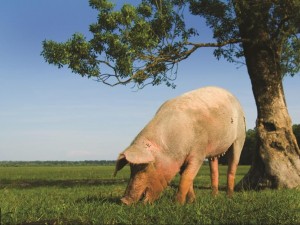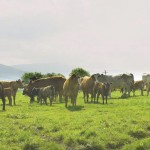Humane Slaughter Association recognises welfare achievements
The Humane Slaughter Association (HAS) has revealed the joint winners of its 2017 Humane Slaughter Awards, which recognises individuals or organisations that have made major scientific advances in the welfare of livestock during slaughter, transport or killing for disease control.

Professor Malcolm Mitchell of Scotland’s Rural College and Peter Kettlewell have won the award in recognition of the developments they have made in improving the welfare of food animals during transportation.
The two have collaborated since 1984 and their research working on thermal stress in animals during transport has been a major contribution to improved animal health, welfare and productivity.
Mitchell and Kettlewell’s current work is chiefly related to long-distance transport of pigs and calves within Europe and the effects of weather, thermal conditions and journey duration on animal welfare in transit.
Both scientists have advised Defra and industry on welfare issues relating to animal transport and production environments and serve on the European Food Safety Authority committees addressing animal transport legislation.
Recently, they have been major contributors to Guides to Good Practice for animal and poultry transport developed by FVO, DG SANTE and a European research consortium.
At their previous work, beginning at the Silsoe and Roslin Institutes, they used a unique combination of physical, engineering, physiological and behavioural techniques, including welfare assessment, ventilation and vehicle design, wind tunnel testing, full-scale on road testing and practical measurements during commercial transport under a wide range of conditions.
These results, combined with developments in novel sensor technologies to monitor the physiological conditions of animals in real transport environments, led to important findings, including that contrary to intuition, air flows from back to the front in a moving livestock container, greatly influencing the internal thermal micro-environment of the vehicle.
The understanding of such physical phenomena and principles led to the design and development of in-built forced ventilation systems, especially in poultry vehicles, which have improved the welfare of millions of animals in transit.
The award will be presented to the winners at the Universities Federation for Animal Welfare 2017 International Symposium at Royal Holloway, University of London, on 28th June.

 Best of the UK meat industry honoured at Meat Management Industry Awards
Best of the UK meat industry honoured at Meat Management Industry Awards Global beef outlook hit by Q2 market disruptions
Global beef outlook hit by Q2 market disruptions
